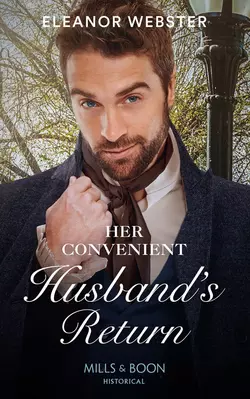Her Convenient Husband′s Return

Eleanor Webster
Тип: электронная книга
Жанр: Современная зарубежная литература
Язык: на английском языке
Стоимость: 458.46 ₽
Статус: В продаже
Издательство: HarperCollins
Дата публикации: 16.04.2024
Отзывы: Пока нет Добавить отзыв
О книге: Her convenient husband is back!And everything has changed…After Beth married her childhood friend to escape from debt, he swiftly returned to his life in London. But now Ren’s back, as Lord of the Estate, and Beth’s heart pounds whenever he is near! She’s wary of his expectations of her to produce an heir, for fear of passing on her blindness. But Ren’s hidden sensitivity is a surprise—could their arrangement become something much more passionate?